Introducing the latest myCWT product and service enhancements
Building on our digital, omnichannel myCWT platform, our new products and services will simplify travel management for you and your employees – anytime, anywhere, anyhow.
Note: Featured services may not be available in your country at this time. Please reach out to your CWT representative for more details.
Hear from Chief Product Officer, Erica Antony as she shares the key product highlights of 2024, along with the key areas driving innovation.
-

2040: Baseline, Boom or Bust
As we enter an era of rapid transformation and unprecedented challenges, it is essential for travel managers, meeting & event planners, and corporate decision-makers to look ahead and frame our current strategic thinking with a clear vision of the future. Business travel and meetings and events (M&E) are poised for significant change over the next decade and a half, driven by a complex interplay of sustainability goals, technological advancements, evolving work models, and geopolitical dynamics.
In this paper to mark the 10th anniversary of our Global Business Travel Forecast, we explore, for the first time, a long-term vision of the future and potential trajectories through three distinct scenarios, each offering insights into how these forces should affect policy-making, budgeting and priorities. By examining these scenarios, we can better understand the diverse possibilities that lie ahead and the strategic imperatives required to thrive in each potential future.
Based on trajectory data analysis and interviews with industry leaders, behaviorists and climate tech founders, this forward-looking approach enables us to anticipate changes, strengthen our strategies, and make informed decisions that align long-term objectives. It is through this lens of foresight and adaptability that we can build resilience, seize opportunities, and navigate the complexities of the future.
We invite you to reflect on the insights presented, and consider how your organization can prepare for the opportunities and challenges that lie ahead. Together we can ensure that travel and meetings remain catalysts for growth, scalability and sustainable practices.
- Scenario development is both an art and a science
- Megatrends Shaping the Future of Business Travel, Meetings and Events
- Sustainability goals the new crux of corporate policy
- Technology Revolutionizes Travel Management
- Modern work models spark new travel patterns
- Changing demographics open doors to new opportunities
- Three Scenarios: Base case, boom and bust
- Future-proofing strategies

-

CWT GBTA Global business travel forecast 2025
When it comes to pricing, global business travel has finally reached an enduring, higher baseline. Prices will continue to rise in 2025, but only moderately, so expect a period of normalized growth.
However, this pricing environment, one of marginal gains and price regularity, is fragile. Global leisure travel has now realized a lot of its pent-up demand, while corporate travel has been resurgent, with 2024 edging at preCovid levels.
There are many factors at play, whether its volatile oil prices, labor costs and constraints, inflationary pressures, and geopolitical factors. As this elevated baseline edges upwards, albeit marginally, travel budgets will come under increased scrutiny, especially as travel patterns and attitudes change.
It’s why business travel can’t be viewed in a silo, and the true value to an organization must be fully realized. This forecast can help with those calculations.

-

Capitalize on emerging technologies in corporate travel
Technological advancements are accelerating at an unprecedented pace. How will emerging innovations like Generative AI, blockchain, and self-sovereign identity (SSI) transform corporate travel?
BTN and CWT probed global CEOs, travel managers, industry consultants and tech experts on the promises, questions, and expectations these innovations raise and how they are set to reshape traveler experience, cost control and service delivery in corporate travel and events.
Download and discover
- The technologies that will have the greatest impact on corporate travel in the next 2-5 years
- How these emerging technologies are poised to control costs, enhance service and security, and boost efficiency
- The critical challenges, opportunities, risks and roadblocks each innovation raises
- What travel managers, buyers and experts anticipate from these innovations

-
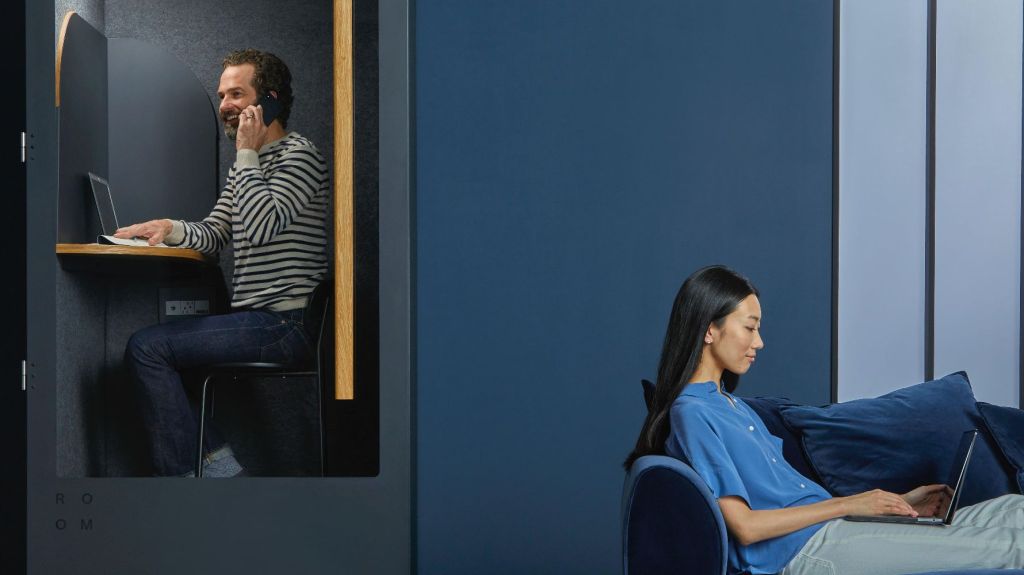
Perks of the job – 7 ways to boost employee satisfaction
Just as business travel is changing, your employees are also changing.
Millennials are about to become your biggest employee demographic, and Generation Z is growing into the workforce. Where Millennials prefer to use technology to communicate, favour seamless experiences, and look for workplaces that give them more travel choices – Gen Z are true digital natives. For them, connecting via technology and individualized travel are a given, not a benefit.
Given a recent study found that 88 % of millennial business travelers said their job-related travel experience affected their overall job satisfaction, it is clear that delivering a great traveler experience will become a key factor in attracting, engaging and retaining employees in the future.
But, how can you evolve your travel program to meet to better meet your traveler’s expectations? And, will this come at the expense of, well, expense?
Employee experience: an untapped source of ROI (Return on Investment)
The business travel industry continues to grow at a rate of 7%. Providing a great traveler experience—one that includes the services they want to use, and boosts morale, engagement and productivity, will become ever more important in nurturing talent, and driving business outcomes.
Data now drives business travel. Travel powered by data insights is helping us replace the old push-pull between cost and performance, with a more holistic, value-centric approach. With access to crucial insights into what makes business travel work for employees and businesses alike, companies have an enormous opportunity to seize traveler experience as a driver of ROI.
By focusing on supporting the productivity of employees who are traveling for work – using employee satisfaction, engagement and well-being – you can deliver tangible value to your business.

More choice makes for happy travelers and more in-policy bookings
Read on for seven ways to improve employee satisfaction.
- Extract value from traveler data – Did you know you could be using your data to measure the end-to-end cost of a trip? Track why and how traveling employees are not compliant, and understand the behavior of different traveler groups? Data insights empower you to truly understand your employees – so you can design a program that works for them. Armed with a 180-degree view of your travel program, you can make changes that will have real impact on your employee’s travel experience.
- Use individualization to meet employee needs – Many organizations squeeze their employees into a one-size-fits-all box, and then wonder why their policy is ignored and their program compromised. Traveler segmentation allows you to profile different types of traveling employees so you can specify your messages and maximize the impact of your travel program. Read our e-book to learn more about how you can meet the needs of different types of travelers.
- Simplify the booking process – 52% of business travelers say that using their company’s online booking tool or app falls in the top three most challenging aspects of booking through their travel program, according to CWT and GBTA research.
Travelers want a simple and individualized business travel booking experience that matches what they get when traveling outside of work. Choose tools that simplify booking, like myCWT. Our tool is accessible across platforms, including online and via an app, and uses profile recognition to speed up the process and offer personal preferences, helping employees feel in-control and engaged when traveling.
Read more expert strategies to keep employees compliant, committed and content. - Provide more choice – A recent survey by GBTA and CWT found that 73% of travelers say it is a “challenge” to find lodgings near their destination. More choice is the key to boosting in-policy booking. Find opportunities to increase your hotel options, such as using RoomIt, our dedicated hotel program that offers more than 800,000 properties that are included within company travel policies.
- Offer rewards that enhance the travel experience – Amenities aren’t just ‘nice to have’ perks. Premium Wi-Fi, gym passes and other services can help employees stay productive and boost performance during a business trip. 71% of travelers agree that if they give up their time to travel, they should have the ability to earn loyalty points. Assess how you can use amenities and loyalty programs to improve employee satisfaction and help boost the value they see in traveling for your business.
- Help them stay connected – When changes occur, the stress levels of your traveling employees rise. Ensure you provide tools to keep your in the know about cancellations and potential dangers. Use a messaging service that quickly finds answers to questions, and an app that helps them rebook flights, ground transport and hotels in the event of a delay, to help employees stay cool, calm, and connected when traveling.
- Make travel simple and seamless – Six in ten business travelers say they are more creative and productive when traveling for business, according to our research. Every part of your employee’s business travel experience – from the moment they step out their front door, to the second they reach their destination – should be supporting your employee in achieving for your business.
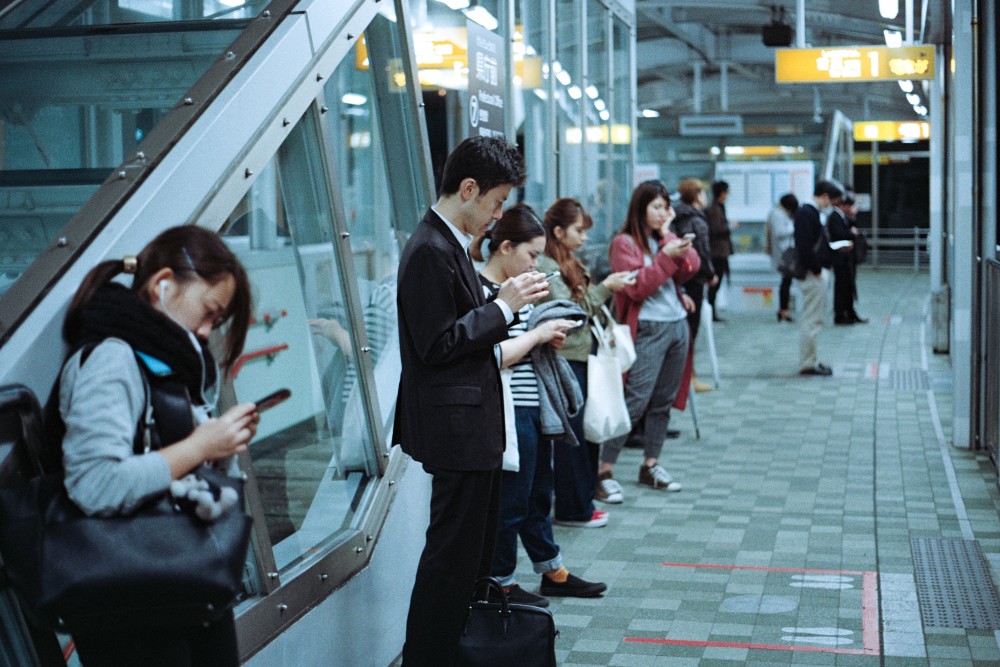
Help your travelers stay connected
With actionable insights and expertise on your side, you can use employee experience to boost productivity and improve your return on investment in business travel.
- Extract value from traveler data – Did you know you could be using your data to measure the end-to-end cost of a trip? Track why and how traveling employees are not compliant, and understand the behavior of different traveler groups? Data insights empower you to truly understand your employees – so you can design a program that works for them. Armed with a 180-degree view of your travel program, you can make changes that will have real impact on your employee’s travel experience.
-

CWT Appoints Kathleen King Vice President of Business Finance
CWT, the B2B4E travel management platform, has hired Kathleen King to oversee CWT’s business finance organization that encompasses the customer, traveler experience, strategy and commerce, and product and technology business units.
King is also responsible for creating consistent financial processes and analytics across the company. She reports to Michelle Frymire, CFO at CWT.
“Kathleen brings broad travel industry experience and deep finance expertise to CWT,” Frymire said. “We are thrilled to have her join the CWT finance leadership team as we seek to transform our processes through investments in people and technology to enable us to better support the business in making critical decisions.”
Prior to joining CWT, King was consulting with clients—designing and implementing the transformation of the finance function. She has held senior finance positions at BBA Aviation, Starwood Vacation Ownership, Delta Airlines, and Continental Airlines. King began her career as a CPA at Ernst & Young.
King earned her B.B.A. in accounting from Texas A&M University and is a registered CPA.
CWT is a leading global partner in business travel, meetings, and events. Operating across six continents, we deliver sustainable, tailored solutions that help organizations connect, engage, and thrive in an evolving world. Our myCWT platform integrates advanced technology with human expertise to simplify travel and enhance traveler and attendee experiences. Extensive global coverage, seamless data integration, AI-driven analytics, and carbon-conscious travel tools enable businesses to optimize their travel and meetings programs while delivering measurable value.
With 150 years of industry experience and a deep commitment to partnership, CWT collaborates with clients to shape the future of business travel and events, making them more efficient, responsible, and impactful.
-
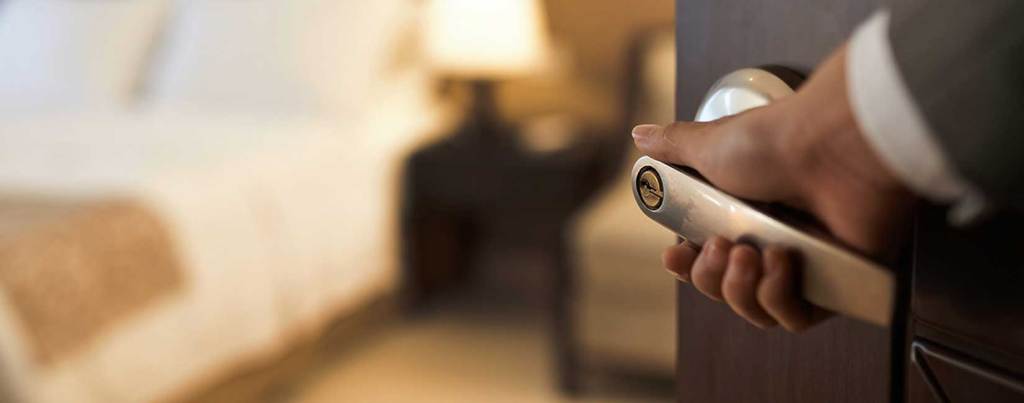
Hotel security checklist
Simple tips to make your next trip more secure
RoomIt, International SOS and IHG have created the ultimate list of safety tips that help keep travelers secure during their trip. This comprehensive list provides necessary steps travelers should take while researching and booking accommodations, and things to consider if parking, during check-in, during the stay, when leaving the room and some additional safety tips for women travelers.

-

The world of travel: Making business travelers happier in each region
RoomIt recently helped launch the GBTA Business Traveler Sentiment Index™, which measures business traveler sentiment over the course of a year.
When we shared the initial findings during a game show session at the GBTA convention, it was fun watching and listening to the reactions of the travel buyers.
There are many universal trends among business travelers from all regions, like high satisfaction with business travel (86%), and especially for the hotel-related components of travel.
A closer look at each region, however, reveals unique traveler sentiment profiles that surprised us and many buyers. Here is a quick look at those profiles and what you can do to improve sentiment in each region.
North America: Stressed and not as impressed
Travelers in North America are among the hardest to please.
They report the highest levels of frustration and are the least likely to want to travel more often for work; only 54% would do so.
64% of all travelers say traveling for business increases their stress, and people in the U.S. are among the most stressed on Earth, which may explain this greater aversion to travel.
Despite high levels of stress, only 57% of North American travelers feel their travel policy takes their health and wellness into consideration; the lowest among all regions.
The importance of exercise in combating stress cannot be understated. Considering the high levels of global interest for what have traditionally been considered leisure activities, like yoga (43%), Cross Fit (33%), and meditation (32%), it may be smart to partner with hotels that offer these wellness options or with hotels that work with gyms nearby that do so in order to raise sentiment among North American travelers.
Plus, 73% of travelers are interested in healthy food delivery and considering the positive effects of good health on work productivity your company can ultimately benefit from allowing these types of expenses.

NORAM: The importance of exercise in combating stress cannot be understated.
Latin America: Personal and productive
More Latin American travelers report feeling productive while traveling than travelers in any other region.
75% say they feel very productive in handling day-to-day tasks while on the road, which can be compared with 55%-60% in other regions. 89% also feel travel is vital to making progress on projects or company initiatives.
An important element of this sentiment is likely the strong feeling among Latin America business people that business should be conducted face-to-face. Business is built much more on personal relationships in this region than other regions. Face-to-face meetings are conducive to the small talk and the personable nature of many Latin American business people.
Additionally, despite the fact that Latin American travelers experience the most disruptions, they are more satisfied overall with their travel experience; only 25% find the process frustrating.
88% say travel is enhanced by mobile, which makes sense in the second fastest growing mobile market, and a region containing Brazil, a country with extremely high mobile usage due, in part, to lower personal computer and laptop ownership.
Considering the high mobile use and travel disruptions in this region, it is important to recommend travelers download their TMC mobile app. Not only will they be alerted via their app about flight delays and cancelations, but they can easily access their itinerary and agents who can quickly re-book all aspects of their trip if necessary.
This high mobile adoption combined with relatively low credit card penetration throughout Latin America means travelers in this region are reportedly more likely to adopt cashless wallets or mobile pay than Europeans and North Americans.
Along these lines, Latin American travelers are the most pleased with business travel technology overall, as 91% feel it allows them to keep up with work demands while traveling, and 83% feel social networking and internal networks improve their ability to find hotels.
If you are looking to cut budgets in the coming year by cutting back on the amount of travel, you may want to start with individual regions first. Due to the high desire to travel more and the overall feeling of productivity Latin American travelers, this should be the last region you consider cutting back on if you do take this approach.
Additionally, the results suggest this region may also be good to use when piloting new travel technologies.

LATAM: Business is built on personal relationships.
Europe, Middle and Africa: Choice matters
One in three people travel over 12 times a year making them the busiest travelers in the world. Despite their frequency of travel, they tend to have less mishaps and are generally pretty satisfied with their experience.
When asked about a hypothetical need to cut travel budgets, travelers in these regions are the most willing to cut the number of trips taken each year (66%), as opposed to cutting spend on a per-trip basis.
Again, if you take that regional approach to cutting trips in order to reduce your travel budget, this region could be the right one to begin with. However, before you do that, consider that according to the US Travel Association, for every dollar companies invest in travel, $12.50 in incremental revenue is realized.
One area of concern for these travelers, however, is the variety of choices when booking accommodations, as they are the least satisfied among all regions with only 17% being very satisfied. This low satisfaction can result in higher hotel program leakage.
Overnight stays account for a huge portion of the overall travel experience, and this market is flush with independent and boutique hotels that these travelers seek access to. Utilizing TMC deals and third-party rates are an easy way to bring these properties into your program and reduce out of channel bookings.

EMEA: This market is flush with independent hotels.
Asia Pacific: Tech-savvy and willing to travel
Asian Pacific travelers are eager for more options and interactions.
Travelers in this region report that they are the most likely to have home-sharing included in their travel policies. This seems to be in response to a high demand for alternative lodging styles in this region. However, more options need to be made available, because, like European travelers, Asian Pacific travelers still report a lower satisfaction with the variety of property choices (19% are very satisfied).
Secondary and tertiary cities in Asia tend to have low supply and growing demand, so you should consider expanding your content to include less traditional lodging styles. For example, you may need to include guest houses in India and ryokans in Japan, and it may even be necessary to have camp sites available in Australia in order to fill in the gaps these travelers are facing.
77% say they are willing to travel more often, which comes as a bit of a surprise considering 63% of Asian Pacific travelers feel technology can be used as an effective replacement for face-to-face meetings.
This discrepancy may be explained by the fact that Asian Pacific travelers feel time spent with clients, prospects and coworkers is the most important way to meet corporate goals; more important than technological support, setting clearer objectives, improved Wi-Fi access and better work space options.
The high demand for travel is also likely aided by the less frequent flight cancellations and delays, as well as the lower levels of travel related stress reported in this region.
Unsurprisingly Asia Pacific travelers are the most likely to use mobile or cashless wallets over the next 12 months, as China is far outpacing the world in both use of mobile payment and vendors that accept mobile payment. If you haven’t already, you should begin strategizing how to integrate with mobile payment systems like Alipay and WeChat Pay, or a credit card that allows for pay by mobile.
Like Latin America, this is a region that simply craves more interactions. Employees can feel isolated when their global headquarters are located in North America and Western Europe, so companies should explore different ways of bringing these employees into the fold. Providing more opportunity for them to travel may be the ticket.
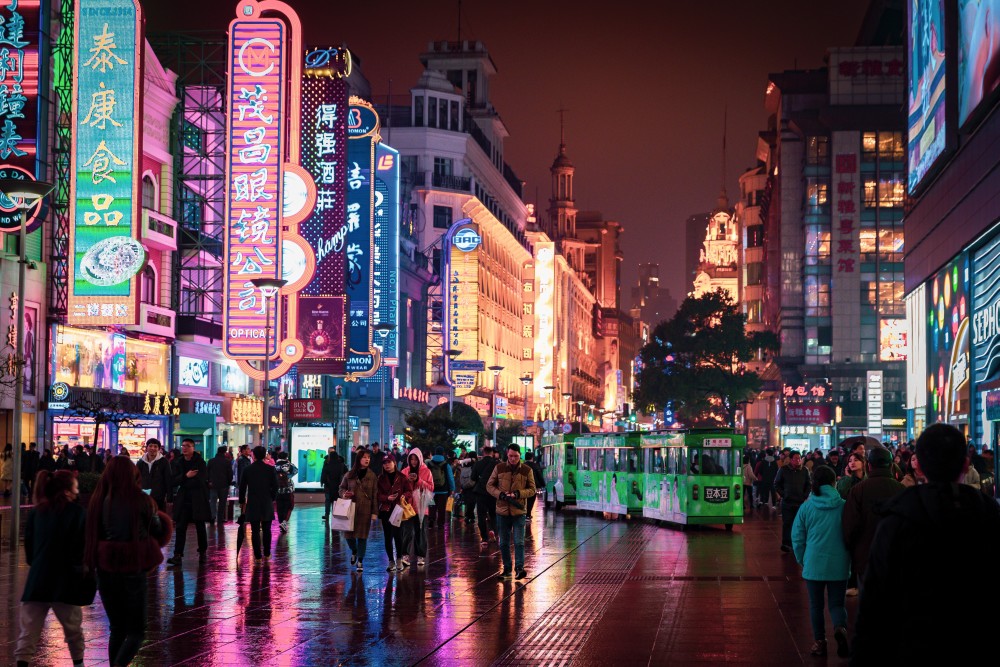
APAC: China is outpacing the world for mobile payment.
A multivariate approach to solving traveler sentiment
Understanding each region’s distinct sentiment profile is an important step in creating a more specialized approach that will go much further in improving overall traveler experience. The first iteration of the GBTA Business Traveler Sentiment Index™ has shown that improving traveler experience means adopting more user-friendly tools, focusing on health and wellness, opening up your content offerings and giving travelers in Asia and Latin America plenty of opportunity to travel and interact.
-

350 people, 100 trees, brought together by one common goal
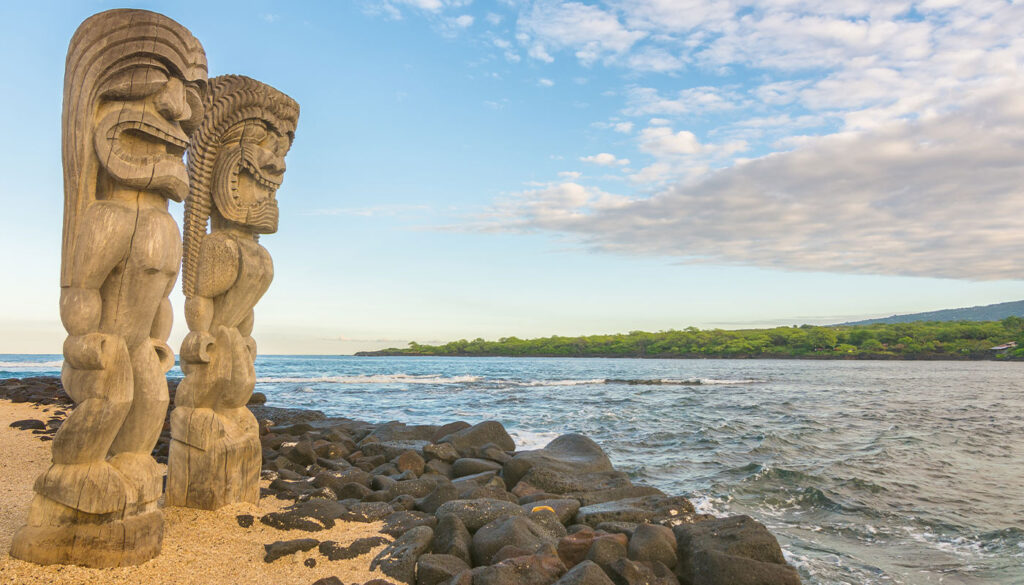
Objective
CWT Meetings & Events collaborated with 3M, a major multinational conglomerate company, specializing in worker safety, health care, and consumer goods in order to execute a unique incentive event. The purpose was to recognize and celebrate the power of community, and reward employees for their efforts and success from around the globe.
In addition, the client wanted a very special CSR (corporate social responsibility) initiative to be incorporated into their incentive. They wanted to find a way for employees to give back to the environment as a part of their program, and to provide employees with a legacy, working together to make a big impact for years to come.
Challenge
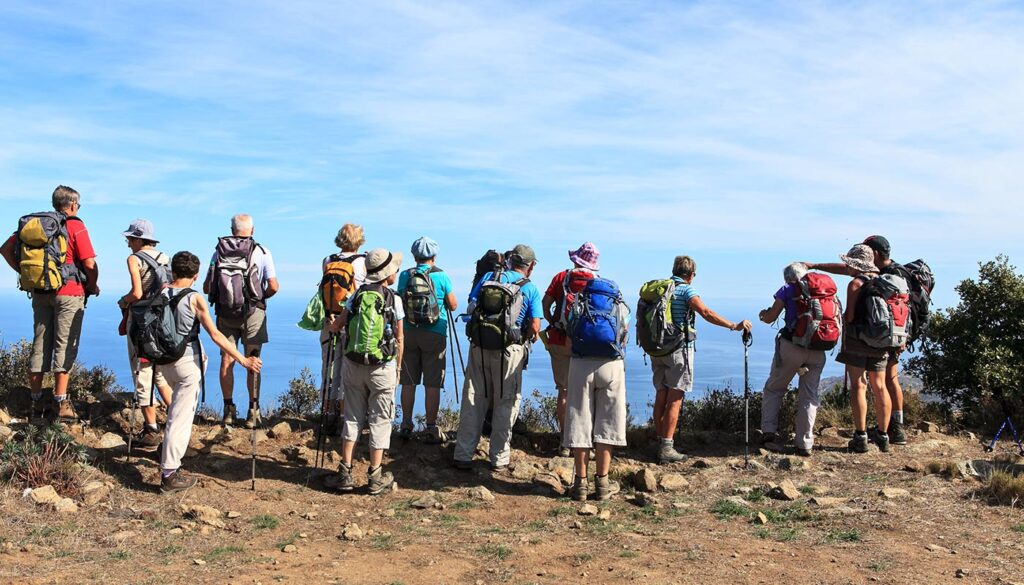
The client chose Hawaii as the incentive destination, but given short notice to source and secure hotels, it proved to be a challenge initially. Also, the scale of the event grew from the original count of 850 attendees up to 1,000 attendees.
Solution
With the client’s requirements in mind, and exercising extensive knowledge around incentive travel and impactful CSR activities, we provided clear solution to achieve their objectives.
Using preferred suppliers, CWT M&E were able to accommodate the level of demand for the event across three properties, even after the number rose by 150 attendees. In addition:
- Secured meeting spaces for the organizational strategic meetings.
- Ensured timely arrivals and departures to and from hotels, airports and organized activities.
- Secured alternative locations for gatherings due to temperamental weather.
Overall, the corporate social responsibility experience became the highlight of the trip. Harnessing 3M’s values around integrity, sustainable growth and respecting social and physical environments, CWT M&E organized a team of 3M and local volunteers to provide long-term, sustainable return to the local community, making a positive impact on the environment.
The community service project involved 350 3M team members who qualified for the event by accomplishing a key business goal. They planted more than 100 trees, including breadfruit and coconut trees, which are projected to yield over 200,000 pounds of fruits annually. These will then be distributed for free to the local community and school districts.

Results
Embodying the client’s requirements into the execution, CWT M&E delivered extensive services that were well received by all the attendees. Through a post-event survey, they indicated a nine out of ten satisfaction rate for the services. Goals were fully achieved and attendees had a memorable experience overall.
The CSR team-building event was a huge success. With widespread local engagement, 3M remained the first group to plant breadfruit within the forest, which left a legacy for the attendees to follow.
“Our team came from all over the world for a very unique 3M experience. We wanted to do something that would leave a positive impact on the community,” said Sara Merritt, strategic planner, 3M.
“We were also thrilled to be recognized as a SITE Crystal Award recipient for this work with 3M, the Ku’ia Agricultural Education Center and the Hawaii Farmers Union Foundation,” said Beau Ballin, Senior Director, Business Development, CWT Meetings & Events.

Quick facts
- 350 3M team members worked with 20 local volunteer farmers to plant 100 + trees
- 9 out of 10 client satisfaction
- CWT M&E winner of SITE Crystal Award for Impactful Incentive Program

“This trip, for us, was about recognizing and celebrating the power of a team, and the community event was a perfect way to work collectively to make an impact and help others for years to come.”
Sara Merritt, Strategic Planner, 3M
-

CWTSatoTravel wins new five-year renewal of government-wide TDY lodging contract, delivering FedRooms and DoD Preferred
CWT, the B2B4E travel management platform, is proud to announce that the U.S. General Services Administration (GSA) has re-awarded the lodging contract to CWTSatoTravel, CWT’s military and government division, for another potential five years.
Under the government-wide temporary duty assignment (TDY) lodging contract, CWTSatoTravel will continue to provide lodging negotiation and management services to all government agencies and military organizations through the FedRooms and DoD Preferred programs. CWTSatoTravel’s partnership with the GSA in supporting FedRooms is now entering its 16th consecutive year. Since 2004, CWTSatoTravel has steadily grown the program to over 2.6 million room nights annually in FY18. Since 2015, FedRooms has experienced a 30% year-over-year growth.
In addition to supporting FedRooms, CWTSatoTravel will also work with the Defense Travel Management Office (DTMO) to service its DoD Preferred Commercial Lodging program.
“We are honored to continue our partnership with GSA and DTMO for the next generation of the FedRooms and DoD Preferred Commercial Lodging programs,” said Nick Vournakis, president, military and government markets, CWTSatoTravel. “In 2018, FedRooms enabled a cost avoidance of $30 million for federal agencies, which is a savings of 8.9% off the allowable lodging per diem per night. We are excited to build upon the past success of this program and continue to provide industry-leading savings and services to the US government.”
Designated as a “Best-in-Class” solution by the Office of Management and Budget (OMB), FedRooms is the only government-wide, government-sponsored lodging program available to all federal and military travelers on official business. FedRooms offers hotel choices that are policy-compliant, have rates at or below per diem, meet all safety requirements, are exempt from hidden fees, and include additional negotiated amenities.
Launched in 2015, the DoD Preferred Commercial Lodging Program is a mandated hotel program in select markets for DoD travelers that ensures they are staying in quality lodging facilities close to TDY locations, are exempt from certain fees, and are offered amenities at no additional cost—all while staying in rooms that are below per diem.
CWT is a leading global partner in business travel, meetings, and events. Operating across six continents, we deliver sustainable, tailored solutions that help organizations connect, engage, and thrive in an evolving world. Our myCWT platform integrates advanced technology with human expertise to simplify travel and enhance traveler and attendee experiences. Extensive global coverage, seamless data integration, AI-driven analytics, and carbon-conscious travel tools enable businesses to optimize their travel and meetings programs while delivering measurable value.
With 150 years of industry experience and a deep commitment to partnership, CWT collaborates with clients to shape the future of business travel and events, making them more efficient, responsible, and impactful.
About CWTSatoTravel
For over 70 years, CWTSatoTravel has served as the largest provider of global corporate travel services for the U.S. military and government agencies. As a division of CWT, we have access to resources that help our customers travel more efficiently and economically, while still providing an enjoyable experience.We issue more than 6.3 million transactions annually to U.S. military and government travelers, in nearly 187 sites worldwide, and handle more than $2.6 billion in annual sales. And we do all this while staying compliant with each agency’s policies and procedures to help them achieve their specific mission requirements.
-
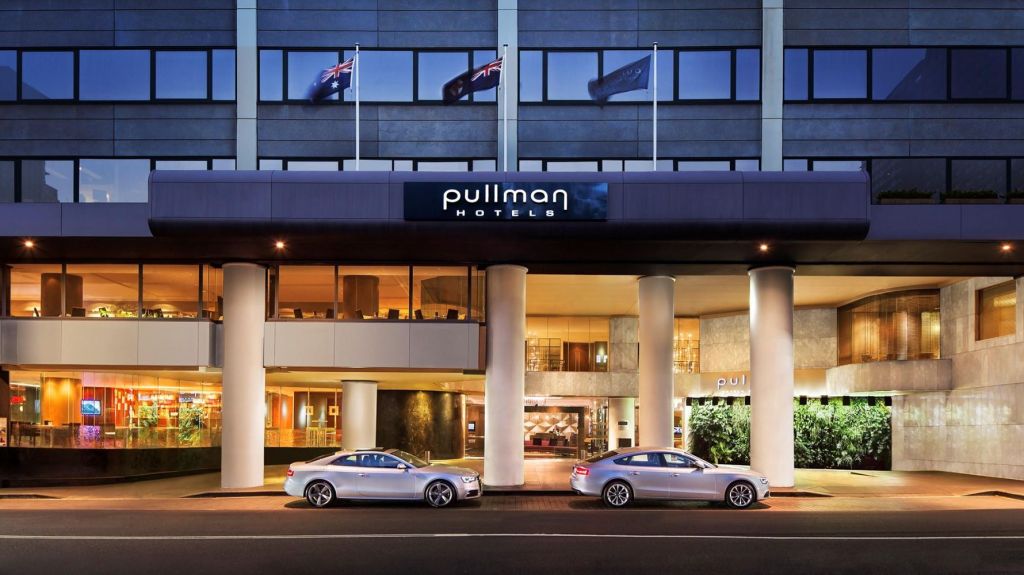
Two at a time: Buyers embrace longer hotel contracts
Travel managers are showing more interest in moving to two-year hotel contracts as RFPs become more time-consuming and complex.
The Global Business Travel Association (GBTA) recently revamped its accommodation RFP template to reflect changes in “accommodation solutions that buyers are using and considering for their travel programs”, and one of the key updates is the inclusion of multi-year pricing.
Elis Kodra, Director, Asia Pacific, CWT Solutions Group, has seen a growing trend towards two-year contracts in Europe, where the longer contracts accounted for 65% of contract volume by March this year.
CWT Solutions Group first moved away from single-year hotel contracts for a European client in 2016, and now “every new piece of business we pitch for includes a two-year contract management term”, he notes.
Two-year and longer contracts are common in other procurement categories, but one-year deals have been the norm for accommodation arrangements for some time. The main motivation for the move to longer contracts is avoiding annual repetition of the significant time and effort involved in the hotel RFP process.
Kodra explains that the widely-used GBTA pro-forma RFP has over 700 questions, and although not all questions are used in all tenders, it tends to be a burden for both buyers and suppliers. The laborious process often starts in June or July and can easily drag on until the end of December, he says, and then rate implementation and audits can take another three months on top of that.
Ari Foo, Global Sales Director for Hyatt Hotels & Resorts, confirms that the RFP process is equally onerous for hotels. Even using the Lanyon system which prepopulates RFP data, hotel responses can take around 25 hours each, taking into account internal meetings, initial submission, rounds of negotiations, and other requirements, with the end-to-end process taking up to six months.
“A longer-term commitment basically cuts the work by half,” he notes.
Reducing the RFP burden
Streamlining the procurement process was a major motivation for global engineering firm Aurecon to change its hotel contracting, according to Jenny Phillips, Australian Travel and Fleet Manager. “It’s about time and resources,” she says.
“In the past, doing RFPs was a bit tedious and we felt that no sooner had we finished the program and launched it, than we had to start the prep work for the following year,” she explains.
Aurecon asked all its RFP respondents to provide pricing for 2019 and 2020, and 95% of hotels were able to offer two-year rates, with just a marginal increase in the second year, says Phillips.
She adds that it was no more time-consuming or complicated seeking two-year contracts than the normal RFP process, and Aurecon now has two-year contracts for more than 90% of the properties in its program.
Renae Trimble, Senior Vice President Commercial – Accor Pacific, also identifies greater efficiency in the move to longer contracts, which reduces the time and effort for both the client and the hotel when the RFP solicitation is an extensive global process. “This enables client and hotel to then focus on delivering the required outcomes from the partnership.”
Benefits for buyers
“With two-year deals, we’re able to significantly increase the efficiency of the hotel sourcing process,” says CWT’s Kodra. “Once you contract your rates, you don’t necessarily have to go back to the market the following year – unless there has been a significant change in market conditions.”
Kodra encourages clients to redeploy the time and effort saved by avoiding the sourcing exercise in the second year to program management and development. “We show clients that sourcing is only part of the program: where the real value lies is the ongoing management of the program, which really didn’t happen before when people were spending nine months on RFPs.
“Now, we can monitor how often the corporate rate is being made available, we can measure ‘squatter rates’ (historical content from non-preferred suppliers) and the unauthorized use of secondary room types.” The monitoring process or program optimization can deliver real savings, removing between 3% and 6% of additional cost from clients’ spend.
Melbourne-based Phillips is looking forward to having more time for program maintenance and fine-tuning. At the same time, she believes the current contracts will provide sufficient flexibility to deal with any changes to Aurecon’s travel patterns in the second year.
Hotel considerations
While Hyatt has not seen much interest in two-year commitments in Asia Pacific so far, Foo recognizes the benefit of “hoteliers knowing that there is business locked in for two years”. However, he explains that for an owner looking to sell their properties, the two-year commitment could be a complication for any future operator.
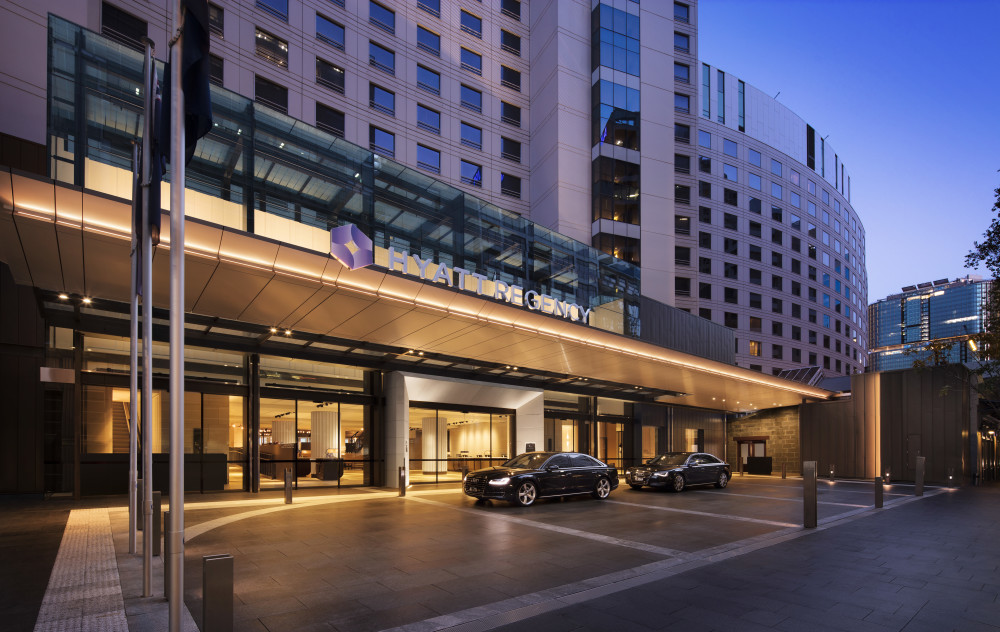
Hyatt Regency Sydney
Market conditions can also affect hotels’ appetite for the two-year commitment. “In high-demand markets, where clients are looking for a flat rate, hotels may be reluctant because they believe they can probably drive rates quite strongly in the second year,” he says. But where you have new supply coming into a market, hotels may welcome the two-year duration “because they’re aware that new hotels are likely to be quite aggressive in chasing business”.
Volume is another factor, according to Foo. Where properties are focused on driving up their yield, a large volume at a fixed rate will have a negative impact on the hotels’ revenue management, particularly in the second year of a longer duration fixed rate program and may prevent the hotel from entering into a two-year commitment.
More flexibility needed
While cost and efficiency may be key drivers in the move to two-year contracting, Kodra sees the real benefit as a move away from protracted sourcing toward the creation of stronger relationships between buyers and suppliers. “Instead of spending so much time managing the transactional aspects, we see clients investing in the development of more strategic, ongoing relationships with suppliers,” he explains.
These relationships require flexibility on both sides. For example, where there may be reluctance on both sides to lock into specific rates for the second year, it may be more practical to schedule a mid-contract review, looking at market conditions, volumes and availability.
Hyatt’s Foo concedes that rate uncertainty may be an obstacle for some hotels, and many will require either an increment in the second year or agreement to review at the end of the first year.
Similarly, Accor’s Trimble recognizes the benefit of a mid-contract review “to ensure that the agreement is working for both the client and the hotel”.
Two-year contracts are here to stay
For CWT’s Kodra, there’s no downside to two-year contracts – and the numbers seem to support that view: “Some of our biggest clients have converted to two-year deals. Currently, in APAC, we have 100% renewals (for hotel tenders) on two-year deals. From the supplier side, in 2018, we got adoption of 82% from the global chains,” he says.
Furthermore, Kodra has not come across one client that wanted to revert to one-year contracts.
Of course, two-year contracting may not always be an option; for example, where the hotel is unwilling to commit to such an agreement. Volatile markets or those whose currencies are particularly unstable might also not be good two-year candidates.
Kodra says corporates should not only be thinking about the length of contracts, but also more broadly about their hotel procurement strategy. “In a more strategic approach, you don’t need to contract hotels where you don’t have buying power. The rule of thumb is to focus on cities where you have more than 400 room nights. Less than that, you’re better off using your TMC’s content and rates, provided they are competitive and have adequate coverage.”
-

Head in the clouds – 3 ways business travel can boost your creativity
Anybody whose job requires having good ideas knows that staring at a blank screen won’t get you there. Neither will sitting in the same chair and sipping the same latte from the same mug as every other day. A rigid routine won’t make you the next Hemingway or Dali. It will make you a Mr. Men character. In other words, two-dimensional and predictable.
Instead, inspiration shines through the cracks in the mundane, and the break in our daily rituals.
Our study found that 6 out of 10 travelers globally feel more creative and productive when traveling for business.
Business guru Peter F. Drucker says, “If you want something new, you have to stop doing something old.” It’s no surprise then that studies show traveling is beneficial to creativity. Physically getting away allows you to view things from a different perspective.
Adam Galinsky, a professor at Columbia Business School researched the impact of travel on creativity. He says: “Foreign experiences increase both cognitive flexibility, integration of thought and the ability to take deep connections between disparate forms. The key, critical process is multicultural engagement, immersion, and adaptation.”
So how do you make the most of a business trip to spark creativity and productivity? Here are three ways.
1. Enter the twilight zone – jet-lag can inspire new ideas
Jet-lag is a strange beast. It can be irritating to wake up before the sparrows and two hours before the breakfast buffet opens. But because jet-lag alters your brain chemicals, it can put you in a relaxed state. Plus, it means fewer distractions from emails and phone calls.
Instead of fighting your circadian rhythms, if you wake early, use the time to solve the biggest problem on your to-do list, bash out a proposal or do some creative writing. You’ll need a conversation starter when you pass out in your soup at the team luncheon.
2. Adrenalin junkie – not all stress is bad
TV Shows like the Amazing Race – in which contestants race around five continents – hopping on planes, trains and bungee jumping to be the first to hunt scorpions in Botswana or skydive in Bora Bora are popular. Why? Because figuring out the language, culture and lay-of-the-land at a new place is exhilarating. It gives our brains a boost and makes us feel confident because we’ve navigated new situations successfully.
In the journal of Personnel Psychology, researchers from Indiana University analyzed the lives of 2,363 people in their sixties from 2004.
They wanted to find a correlation between workplace stress and mortality. At the end of the experiment, they found that those who had freedom and control in their high-stress role were 34% less likely to have died than those in less stressful careers.
If you’re a traveling employee, it’s likely that your company trusts you enough to set your own goals, and decide how you’re going to get them done. You may not get to go scorpion hunting but the adrenalin rush of traveling somewhere new can be positive.
3. On Walkabout – Get out of the office
Oftentimes, business trips are a fly-in, fly-out affair. When possible, make time to tack on an additional day or take a few hours to explore your local surrounds. Neural pathways are influenced by environment and habit, so they’re sensitive to change. New music, food, sights and even the different light and air of a new place has the potential to revitalize the brain.
Safe trip, Little Miss or Little Mr. Creative.
Image credits: Adobe Stock
-

Blue-sky thinking – Should you travel for business in uncertain times?
“If we surrender to the air, we can ride it,” Nobel Laureate and author Toni Morrison wrote in her novel 1977 novel, Song of Solomon.
Her passing this week leaves us with a trove of wisdom, including this powerful quote. It’s a reminder to take risks and surrender to the unknown.
In all areas of our lives – from personal relationships to career decisions – fortune favors the bold.
After sharp rises in 2019, our Global Travel Forecast predicts slower growth. Prices in the global travel industry are likely to decelerate in 2020, with flights rising 1.2%, hotels 1.3%, and rental car rates up just 1%.
Global uncertainty will be a major issue across all regions: “Risks and ambiguity have increased over the past few months – not least the threat of escalating trade wars, the impact of Brexit, possible oil supply shocks, and the growing likelihood of recession,” says CEO Kurt Ekert.
While it’s natural to slash costs like business travel in precarious times, is it really the best decision that you can make? Not necessarily.
What is critical is to make the most of your work trips. After all, insecure times call for innovation. Here are three ways to make your trip an invaluable investment, not an extra cost.
1. Overhead, not in your head – work on the business, not in it
At face-to-face meetings with colleagues from abroad, focus on working on the business vs. in the business.Well-planned meetings focus on strategy and big ideas. Turn off mobile phones and close your laptop while others are presenting so you aren’t dragged into everyday fire-fighting.
You might use this time to work on an idea that requires the full of arsenal of body language and the energy of being in a room together. You could plan to phase out a product or service that is not viable, or improve cross-departmental collaboration. Make your agenda about investing in your company’s future and the cost of flights and hotels will be a drop in the ocean.

Focus on strategy and big ideas
2. To dine own self – get to know your people
In a global company with team members dotted around the world, face-time is critical. Chatting over a meal can provide a surprising opportunity to identify hidden skills and understand what employees naturally gravitate towards.
You want your team to use their talents and engage with the business in ways that generate the results that you need, while giving them room to explore how they can best contribute. Throw away the job-description and head to dinner instead. You’ll need a cohesive team, brought together in informal settings, to navigate the future as a solid unit.

Get to know your team in informal setting
3. Fresh out the gate – motivate younger employees
Our research shows that six in ten travelers feel more creative and productive when traveling for business. This is overwhelmingly the case with Millennial travelers. In the Americas, 77% feeling more creative and productive, followed closely by those in Asia Pacific (75% ) and Europeans (58%).
“These findings are not a surprise,” says Niklas Andreen, Executive VP and Chief Traveler Experience Officer, “travel energizes people, fosters fresh thinking, creates connections – and nothing beats a face-to-face meeting.”

77% of Millennials believe that traveling for work boosts their creativity
If one were to take Toni Morrison’s advice literally, perhaps surrendering to the air and booking a flight is exactly what your future success might need right now.
Read through our Global Travel Forecast for further insight and trends to help you plan your trips in 2020.
-
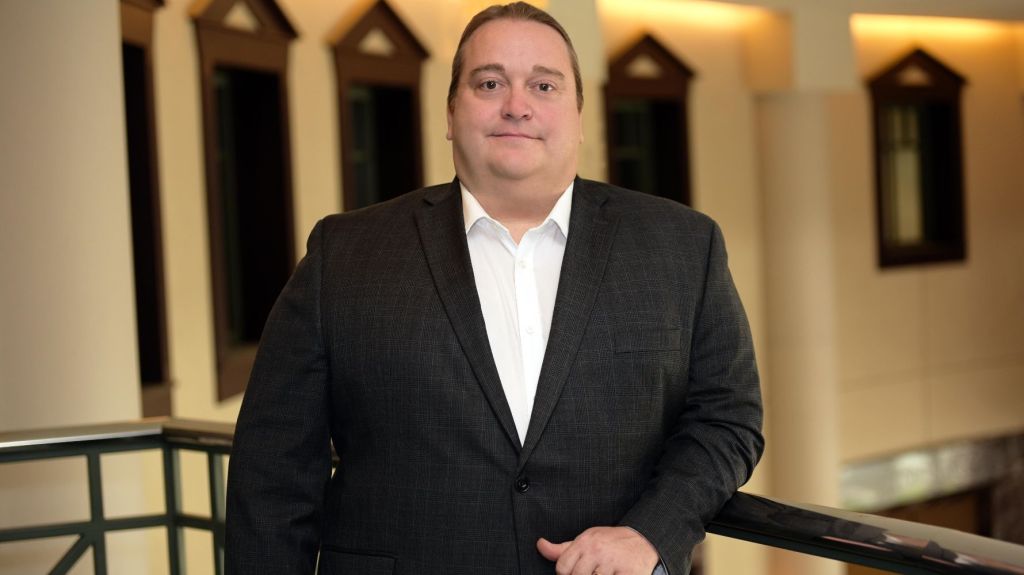
Richard (Rick) Carlson Gage appointed Chair of Carlson Inc.
Carlson Inc., an international travel management company and private investment firm, announces the appointment of Richard “Rick” Gage as its Non-Executive Chair of the Board, effective August 2, 2019.
Appointed Vice-Chair in 2018, Rick succeeds Diana Nelson, who completes her term as Chair of the Board of the company, after two successive terms, as required by the Charter of the Board.
Under Diana’s stewardship, Carlson underwent a substantial restructuring of its portfolio of businesses, including the sale of its hotels and restaurants; the purchase of 100% of CWT, the B2B4E (business to business organization that ultimately serves our clients’ employees) travel management platform; and the launch of Carlson Private Capital Partners, a privately-held middle market investment firm. She remains a member of the board.
“On behalf of the Board of Directors, I am delighted to announce our decision to appoint Rick as Chair of Carlson Inc., following his effective role as Vice Chair,” said Michael Sweeney, Chair of the Nominating and Governance Committee of The Board of Directors, Carlson Inc. “The Board also expresses its gratitude to Diana for her leadership of the company these past six years and for positioning Carlson for sustainable, long-term growth. We look forward to an orderly transition of Board leadership under Rick’s direction.”
A director of Carlson Inc. for the past decade, Rick is the founder and former CEO of YourMLSsearch.com, a leader in IDX property search, real estate website design, and online marketing. He is on the board of the Carlson Family Foundation, where he has served for more than 20 years. Rick is also a director of the World Childhood Foundation.
He is a graduate of Augsburg University, with a Bachelor of Arts degree in English Literature.
Now in its third generation of closely held family ownership, Carlson is an international travel management company and private investment firm, operating in nearly 145 countries and territories. The foundation of its portfolio of businesses is wholly-owned global travel industry leader, CWT, the B2B4E (business to business for employees) travel management platform. Carlson Private Capital Partners, a middle-market investment firm, was formed by the Carlson family and launched in 2018.
-

Culture club: Creating memorable experiences to reward top performers

Objective
CWT Meetings & Events Brazil were given the opportunity to plan an incentive event for one of Brazil’s largest worldwide insurance company, to Madrid, Spain. Even with the event complexities and challenges presented, CWT M&E executed a flawless event, receiving extensive accolades from the customer.
The requirementswere to provide a seamless digital experience with email invitations, online registration and a customized mobile app for the event.
In addition, transport all 260 attendees from various locations around Brazil to Sao Paulo – the hub for international airlines before traveling on to Madrid, Spain.
The client requested CWT Meetings & Events to deliver a memorable experience through numerous Spanish activities, gala and award dinners while adding in a few unexpected surprises throughout and keeping costs within budget.
Challenge

“The challenge was to deliver a creative, unique experience, differentiating from a traditional leisure trip that any employee could have if traveling on their own. We showcased our talent throughout the incentive trip tailored specifically to the client” said Rodrigo Botono, Sales Manager, Brazil, CWT M&E.
Additional challenges arose when event’s key contact left the company, and certain internal changes caused setbacks.
Solution
The CWT M&E Brazil team connected with CWT M&E Spain team in order to brainstorm ways to deliver amazing experiences to 260 attendees. Delivering cost savings at show stopping venues through existing supplier relationships and negotiating costs to stay within budget.
The group were gasping with joy throughout the incentive travel experience — from the moment they arrived, to the gifts they received throughout the event, the awards dinner and the exhilarating activities, such as historical tours, traditional Spanish dancing and awards dinners serving traditional Spanish dishes too.
Results

The attendees were astonished at every step of the way. The attention to detail throughout the event made the event exceptional, and the traditional activities provided them a unique Spanish experience leaving them with unforgettable memories from Madrid.
Quick facts
- 100% rated the trip overall as “good” or “excellent”
- 98% said the gala dinner event was “good” or “excellent”
- Every participant said the event agenda was “good” or “excellent”
- CWT M&E scored 97% at “excellent” or “good” for general assistance, communications and coordination


“I would like to thank the organizers at CWT M&E for this astounding event. It allowed me to experience an unforgettable journey with vast amounts of culture, and local flavors which tickled my tastebuds in Madrid. It’s these moments I’ll be taking home with me.”
Participant
-

A thousand and one nights trip to the United Arab Emirates

Oil company TOTAL requested an incentive trip for the best licensees repair garages of a renowned French car dealer, to an exotic destination.
Objective
The objective was to create an incentive trip, to create memories to last a lifetime. Inspiring and congratulating their top performers throughout France was the main objective, providing them with lots of fun and sun. The trip included a range of exhilarating activities and “capture the moment” opportunities for attendees and their guests, including an assortment of special ventures to enjoy during their leisure time.
Challenge
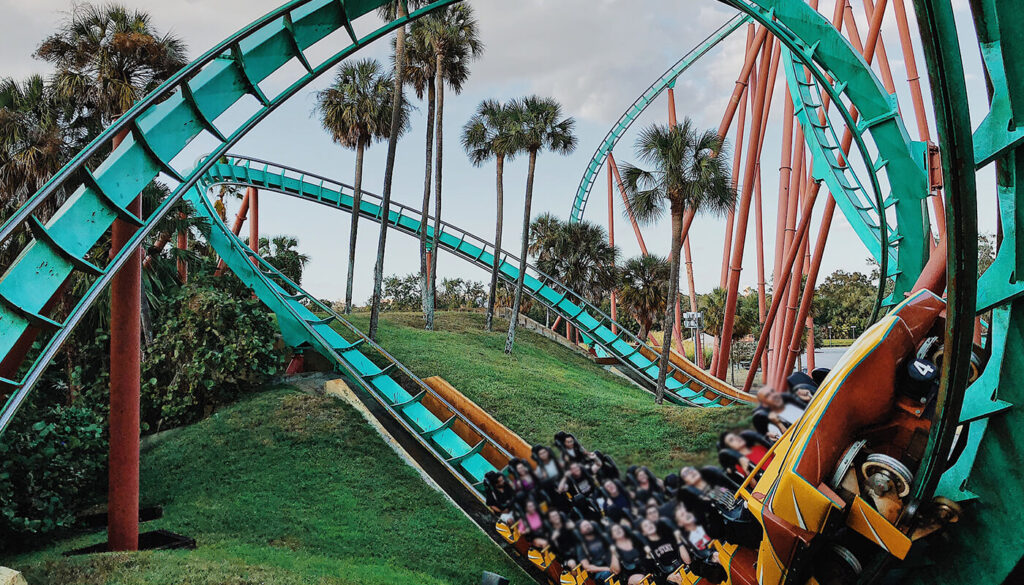
Finding the right host destination sets the scene of an exciting incentive trip. TOTAL proposed two preferred options of Dubai and Abu Dhabi, where anything can happen with a given budget.
Once the destination was decided, the CWT M&E team set to work, to create an itinerary like never before, ready to take all their attendees breath away as soon as they stepped off the plane. The team curated a specific to ensure communications and management was made simple of the attendees, allowing them to concentrate on preparing for their once in a lifetime trip.
Solution
As a part of the adventure, the team selected a few “must-see” spots for attendees to cover, including a trip to the world-renowned white marble Sheikh Zayed Mosque, known for its more than a thousand columns and vibrant and delicate interiors. In addition to an internationally famous Louvre Museum with artwork from famous artists across the world. The opportunity allowed the creative attendees to get up close and person with hand-painted artistry. A moment they wouldn’t forget!
A visit to Ferrari World theme park allowed speed enthusiasts to get on its iconic roller coaster, the Fiorano GT Challenge, and visit the exhibition of historic and racing cars were part of the program. However, the golden sand dunes of the Dubai dessert stole the show, especially with it’s soft like cotton texture, kilometers of spectacular shaped landscape and the opportunity to witness a golden apricot sunset across the horizon. Ending the day with dinner and party in a Bedouin camp, in true Middle Eastern style.
Attendees got the opportunity to experience a spectacular show, created by the founder of the iconic cabaret. It surprises even those who think they have seen it all. The stage was a large swimming pool with more than two million liters of water. During the performance, the pool filled and emptied several times in a few seconds, according to the needs of the stage. The most advanced technology and engineering work was required for the artists and acrobats performing, leaving the group breathless throughout.
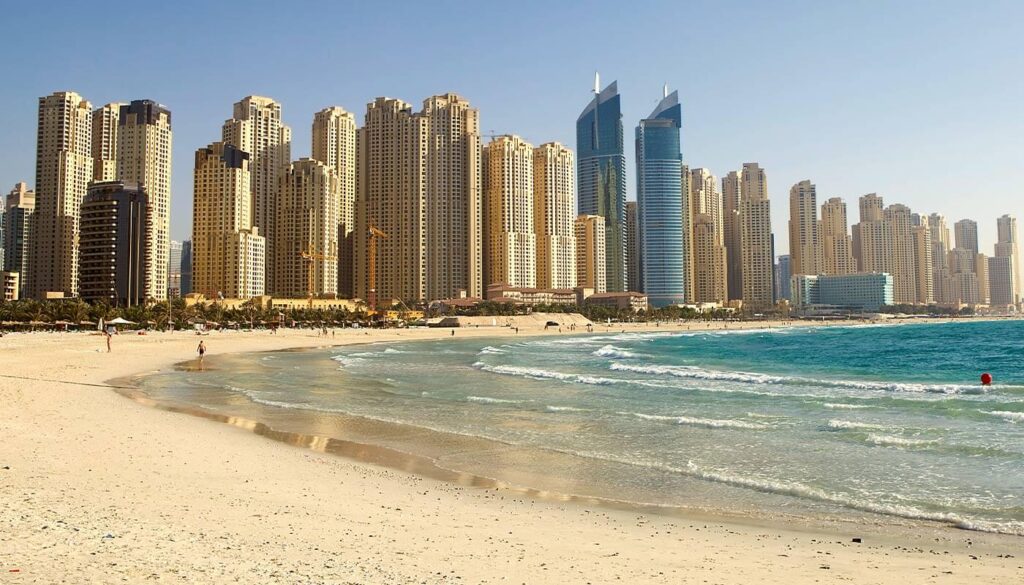
With all the excursions and activities meticulously scheduled, a spectacular sandstorm broke into the city on the day the group were supposed to experience Dubai at height in hydroplanes. However, CWT M&E arranged an alternative activity in record time.
TOTAL gave a very high rating for the responsiveness and decisiveness shown by the CWT Meetings & Events team, because the team were able to offer an alternative activity adapted to the variety of profiles and tastes of the guests.
CWT M&E offered a registration website to manage the trip and provided information in advance. It was the first time TOTAL had used such an advanced tool to facilitate travel information, the registration of participants, and the collection of data from guests. The benefits meant the volume of formalities, calls and e-mails received and managed by the team were significantly reduced.
Thanks to the website, travelers could resort to a reliable source of information to resolve any issues they might have. Given the traditional profile of some guests, not all communication was focused on the online platform. Those who wanted special assistance or preferred personal attention were able to directly contact TOTAL and CWT Meetings & Events staff.
The satisfaction and well-being of the participants were priorities for both companies. Given the unique characteristics of the hotel chosen for the accommodation, whose reception is on the 30th floor, CWT M&E set up three hospitality counters at the key points of the hotel during the entire trip, with permanent information and assistance from the group’s accompanying staff.
The results of these efforts were noted in the final assessment questionnaire. The organization of the trip, the great service received and the speed in solving incidents were the most valued aspects of the trip. Not forgetting the wide variety of activities, the choice of spectacular hotels and the high quality restaurants.
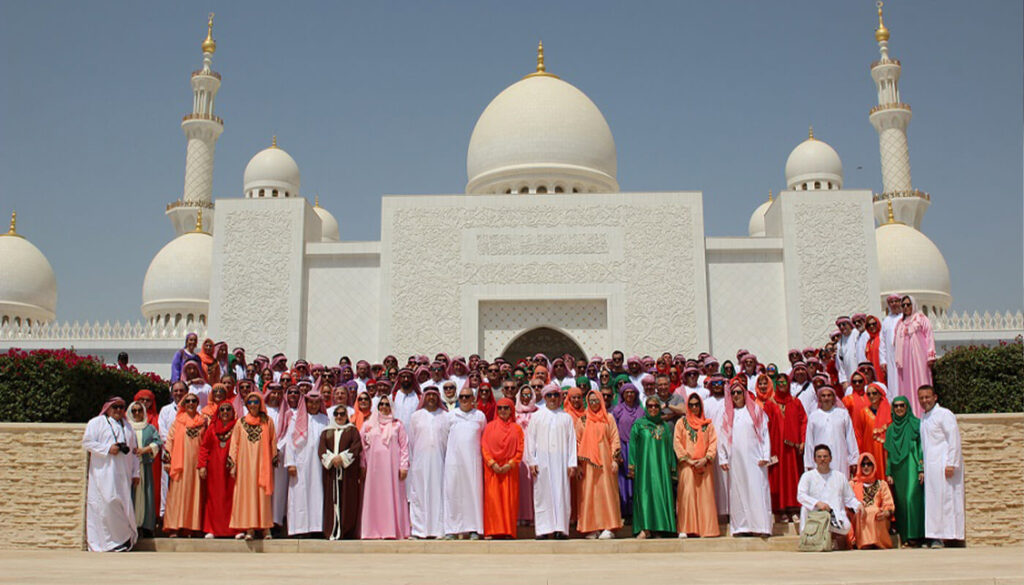
Results
- Participants had a positive experience due to a registration site with information about the destination, timings and activities.
- CWT M&E managed to solve unforeseen problems and make the best out of situation for the participants.
- TOTAL was impressed with CWT M&E performance and agility in organizing such show stopping events.